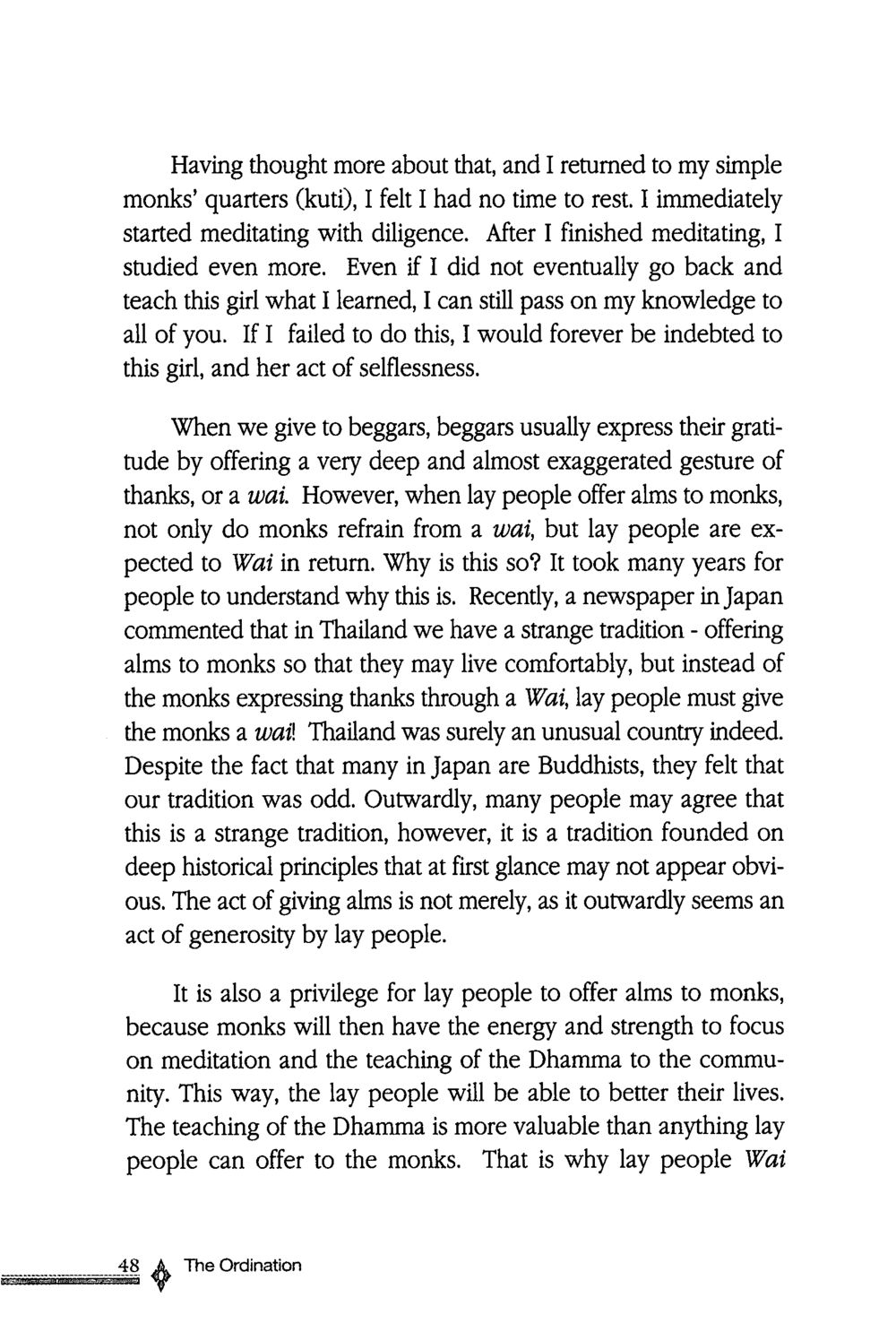Understanding the Tradition of Almsgiving in Buddhism : หน้า 49/105
The ordination : หน้า 49/105 An exploration of the cultural significance and historical roots of almsgiving practices between laypeople and monks in Thailand.
0 ครั้ง

สรุปเนื้อหา
บทความนี้สำรวจความหมายและที่มาของประเพณีการใส่บาตรในประเทศไทย โดยชี้ให้เห็นถึงความสำคัญของการให้ และทำไมไม่นักบวชควรจะเป็นฝ่ายแสดงความขอบคุณผ่านการไหว้ให้กับญาติโยม และความรู้ที่มอบให้จะมีค่ากว่าทรัพย์สินใดๆ ที่ผู้คนสามารถให้.
หัวข้อประเด็น
-การใส่บาตรในพุทธศาสนา
-ประเพณีไทย
-การสอนธรรมะ
-ลักษณะการให้และการรับ
-ความสำคัญของการทำความดี
ข้อความต้นฉบับในหน้า
Having thought more about that, and I returned to my simple monks' quarters (kuti), I felt I had no time to rest. I immediately started meditating with diligence. After I finished meditating, I studied even more. Even if I did not eventually go back and teach this girl what I learned, I can still pass on my knowledge to all of you. If I failed to do this, I would forever be indebted to this girl, and her act of selflessness.
When we give to beggars, beggars usually express their gratitude by offering a very deep and almost exaggerated gesture of thanks, or a wai. However, when lay people offer alms to monks, not only do monks refrain from a wai, but lay people are expected to Wai in return. Why is this so? It took many years for people to understand why this is. Recently, a newspaper in Japan commented that in Thailand we have a strange tradition - offering alms to monks so that they may live comfortably, but instead of the monks expressing thanks through a Wai, lay people must give the monks a wai! Thailand was surely an unusual country indeed. Despite the fact that many in Japan are Buddhists, they felt that our tradition was odd. Outwardly, many people may agree that this is a strange tradition, however, it is a tradition founded on deep historical principles that at first glance may not appear obvious. The act of giving alms is not merely, as it outwardly seems an act of generosity by lay people.
It is also a privilege for lay people to offer alms to monks, because monks will then have the energy and strength to focus on meditation and the teaching of the Dhamma to the community. This way, the lay people will be able to better their lives. The teaching of the Dhamma is more valuable than anything lay people can offer to the monks. That is why lay people Wai
Tags : #อานิสงส์ #พุทธศาสนา #กตัญญู #การใส่บาตร #ธรรมะ
หน้าหนังสือทั้งหมด
หนังสือที่เกี่ยวข้อง
Load More









































































































